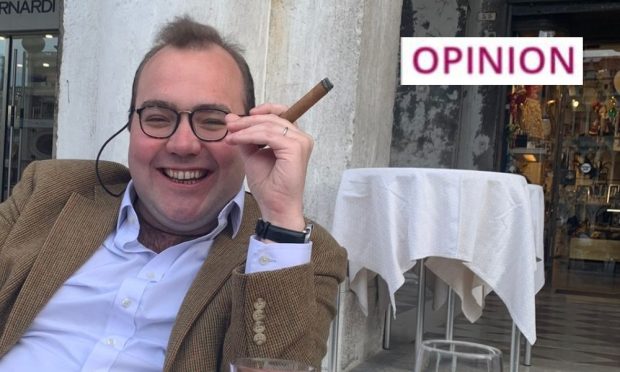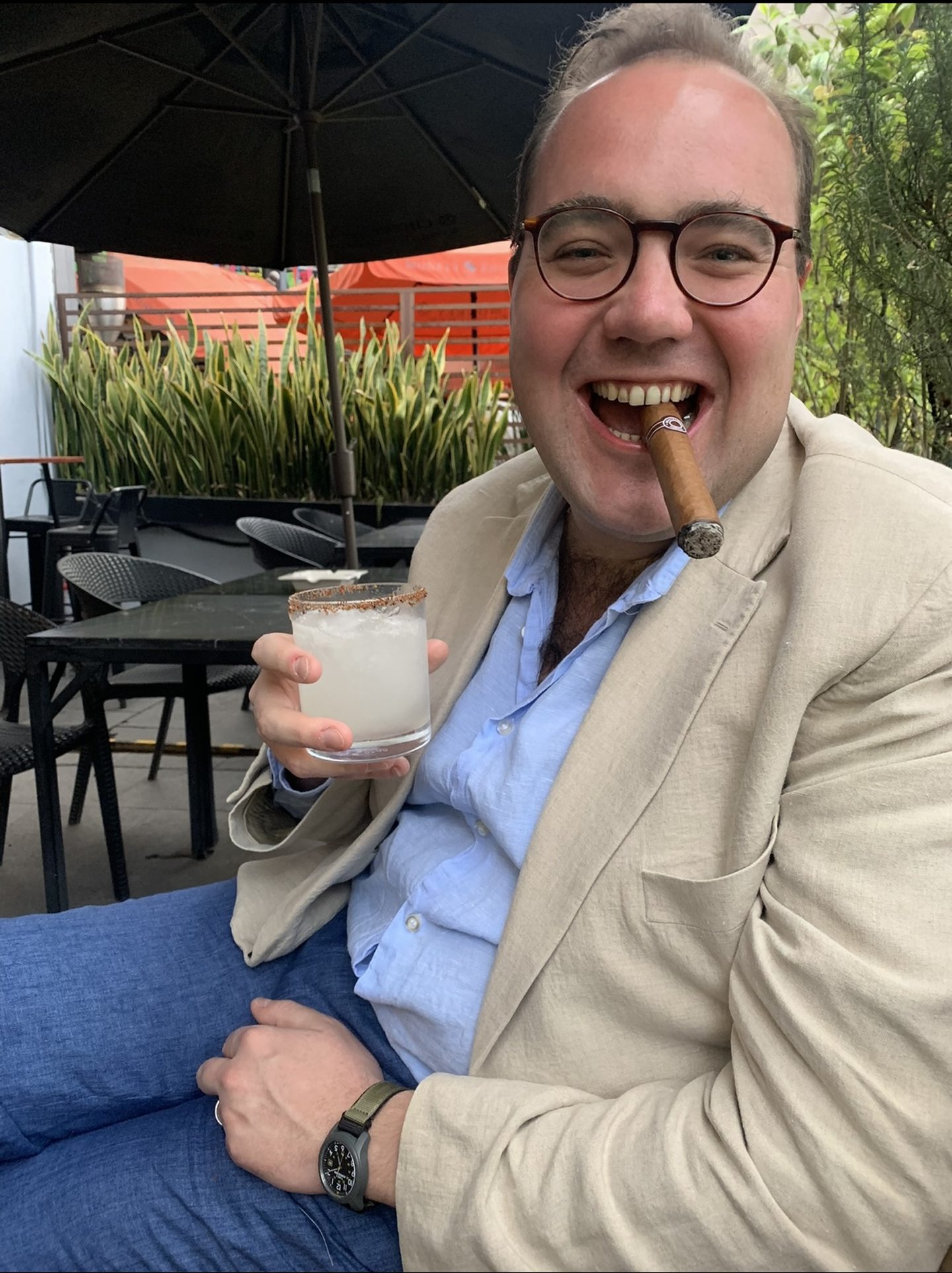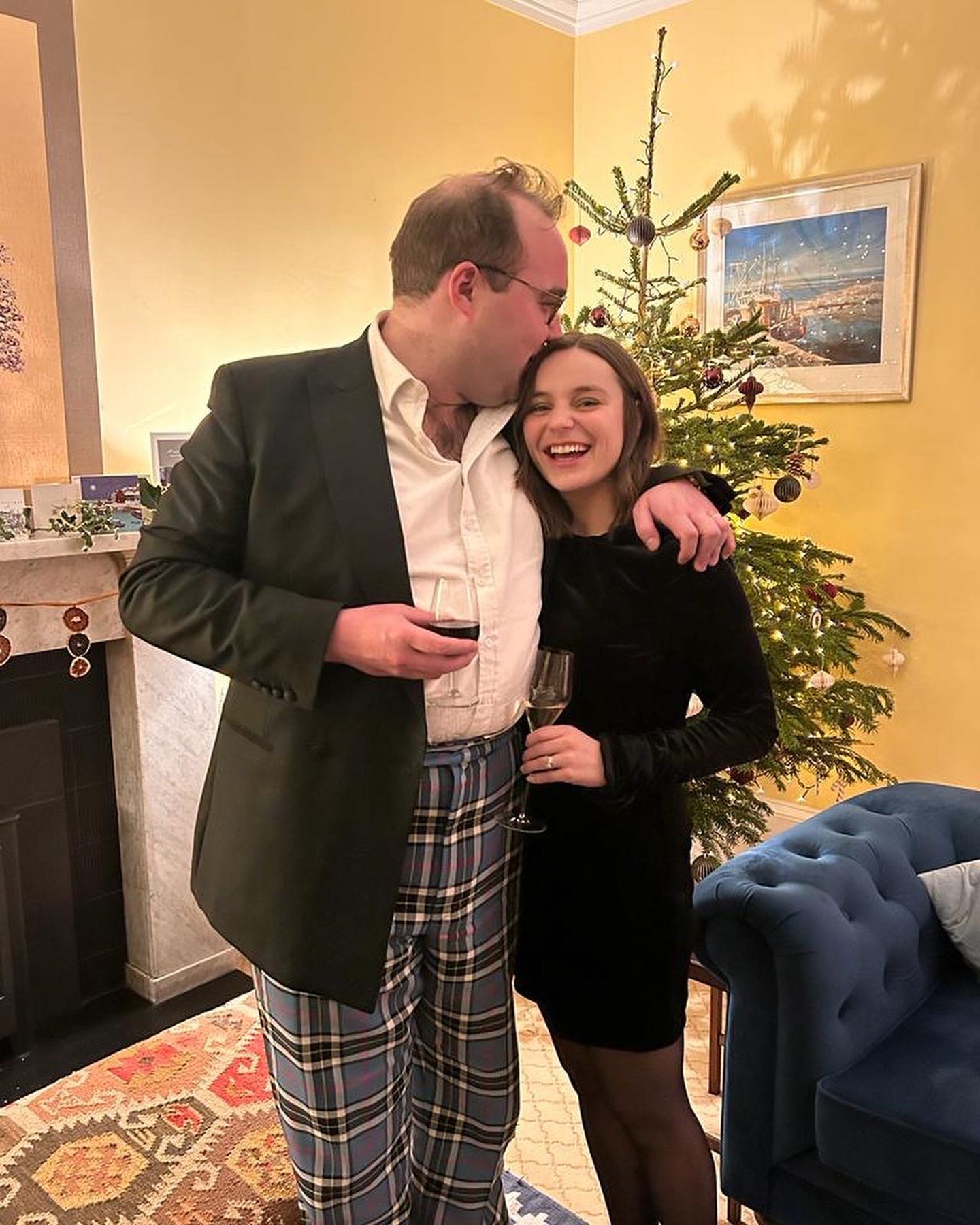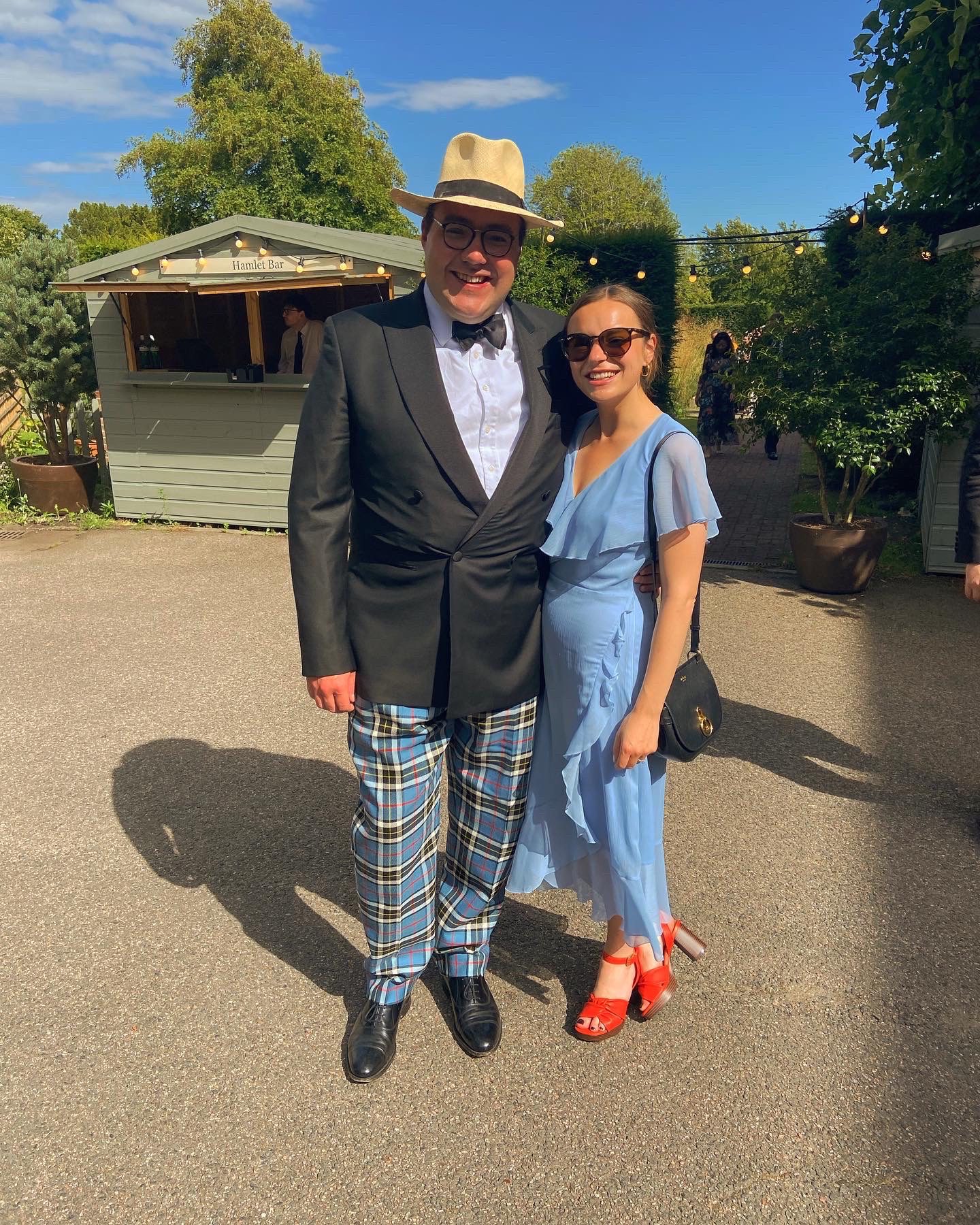There is never a good time to be told you have cancer but receiving the news as a 35-year-old was a particular shock.
It all began with some mild, intermittent, seemingly innocuous discomfort in my upper left arm that – despite the best efforts of my physiotherapist over several months – simply would not disappear.
After numerous scans, a biopsy, a fracture, and lots of people asking me if I had lost weight (“I haven’t, actually, but thanks anyway”) I was told I have a relatively unusual type of bone cancer called a chondrosarcoma.
The tumour itself is about the size of a decent brandy balloon (not, sadly, the official NHS designation) and is growing – invisible to the untrained eye – in my bone cartilage, just above the elbow.
Fortunately, the cancer has, as far as we can tell, not spread elsewhere.
Should it find its way to my lungs the situation would be – figuratively and literally – grave.
Surgery next week
To try and reduce the chance of that, on Monday I will have surgery to get the tumour out or, if that proves impossible, amputate the arm entirely.
When suddenly confronted with the prospect of your own mortality and disablement, it is easy to descend into despondency and recrimination.
After all, while I always said I would give my left arm to see the defeat of Scottish nationalism, I never meant it literally.
But any change in the function of my arm – from major nerve damage to the hand (almost certain), to full amputation – will have a serious effect on my work as a writer, and a life-changing impact in general.
That it will make it easier to dress up authentically as Kaiser Wilhelm II or Stonewall Jackson on Halloween is, alas, only a minor consolation.
‘It’s just bang bad luck’
It is, however, also true that nothing focuses the mind quite like the prospect of your own death, and I now view either of the above outcomes not only as a necessity but a success.
Indeed, if amputation meant even the slightest increase in the chance I could spend more mornings waking up next to my darling wife, I would beg – absolutely beg – the doctors to chop it off right now.
As well as such anxieties about the future, there are even less productive ones about the past.
Why did I not remember the advice of a good friend at university – admittedly in relation to another disease group entirely – that if it doesn’t feel right, to get it checked?
The truth is I never in a million years thought it would be something as serious as this.
So I tentatively looked up a physiotherapist, knocked back some ibuprofen and cracked on with other things.
Equally, there is the aching question of whether my own lifestyle – my years of indulging and indolence – have finally caught up with me.
The doctors, remarkably, insist not: “It’s just bang bad luck,” they said. Cheers.
But this prompts a further question of whether to respond – if I make it that far – with hedonism or austerity.
Certainly, before surgery, I am under strict instructions to be abstemious.
Thus, last night, after my aperitif (10:1 ratio Martini, with a dash of bitters), a glass of Saint-Aubin to start, and a bottle of Saint-Estephe to follow, I forswore all Sauternes, Port and digestif.
Although, in truth, this latter abstention was more to avoid excessive mixing of grape and grain, which would have almost certainly resulted in a hangover.
‘Reminder of all the good’
But while a cancer diagnosis is certainly life-threatening, life-changing and potentially life-ending, it is also true to say it has been life-affirming. A timely reminder of all the good.
How lucky I am to live in a civilised country with fantastic doctors and nurses, with healthcare free at the point of use.
How lucky I am to have faith and the knowledge good will always eventually triumph over evil.
How lucky I am to have friendships – forged in the mere shared circumstance of school, or university, or work – that extend far beyond the good times and into those periods when you need the support of others most.
How lucky I am to have parents whose instinct to protect me is so strong they would gladly swap places with me in a second, if only they could.
How lucky I am to be married to someone whose love for me is so powerful that – even with just a smile, or a hug, or a kiss – she can lift me from the darkest despair.
Of course, this is cancer and – regardless of the success of Monday’s surgery – there are no guarantees.
Uncertainty now lies ahead for years, if not decades.
But, whatever the ultimate outcome, my cancer diagnosis has already reaffirmed to me this: how much we really have, and how little we really need.
















Conversation